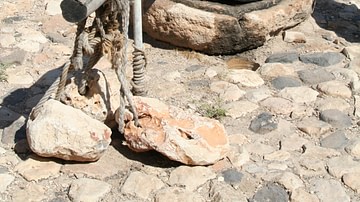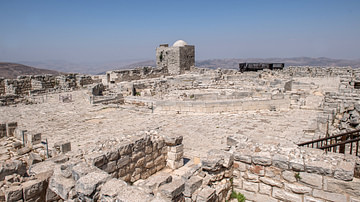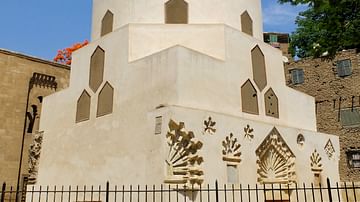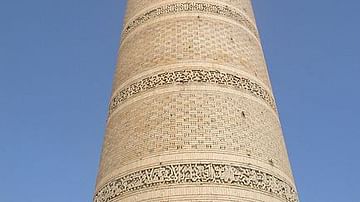Search
Search Results

Definition
Gertrude Bell
Gertrude Bell (l. 1868-1926) was an archaeologist, travel writer, explorer, and political administrator responsible for creating the borders of the countries of the Near East after World War I and, especially, for the foundation of the modern...

Definition
Parthian Cataphract
The Parthian cataphract was a heavy cavalry unit of Parthian warfare, an entirely armored, huge fast horse mounted by a completely armored rider, equipped with a long lance and a long sword. Like a modern tank designed to smash through enemy...

Definition
Ancient Israelite Technology
Technology enabled ancient Israel, the Northern Kingdom excluding Judah, to be economically prosperous and establish itself as a major political power as early as the 10th century BCE, steadily growing until its destruction in 720 BCE. Some...

Definition
Abd al-Rahman III
Abd al-Rahman III was an Umayyad prince who reigned as Emir of Cordoba, and later Caliph of Cordoba, from 912 to 961 CE. His reign is remembered as a golden age of Muslim Spain and Umayyad rule, epitomized by his declaration of the second...

Definition
Samaritans
The Samaritans are a religious sect of ethnic Jews living near Mount Gerizim, Nablus, Hebron, and the West Bank in Israel. This community differs from mainstream Judaism by claiming that followers only accept the five books of Moses (Torah...

Definition
Cochineal
Cochineal is a brilliant red dye extracted from the crushed bodies of parasitic insects which prey on cacti in the warmer parts of the Americas. The dye was an important part of trade in ancient Mesoamerica and South America and throughout...

Definition
Frederick II
Frederick II (l. 1194-1250 CE) was the king of Sicily (r. 1198-1250 CE), Germany (r. 1215-1250 CE), Jerusalem (r. 1225-1228 CE), and also reigned supreme as the Holy Roman Emperor (r. 1220-1250 CE). He was born in Jesi in 1194 CE but spent...

Definition
Shajara al-Durr
Shajara al-Durr (r. 1250) was the founder of the Mamluk Dynasty in Egypt, and she was the first and only woman to sit on the Islamic Egyptian throne. She held the title of sultana for only 80 days but left a lasting mark through architectural...

Definition
Seleucus I Nicator
Seleucus I Nicator (l. c. 358-281 BCE, r. 305-281 BCE) was one of the generals of Alexander the Great (l. 356-323 BCE) who made up the group of Diadochi ("successors") who divided the vast Macedonian Empire between them after the death of...

Definition
Minaret
A minaret is a feature of Islamic architecture and is the place from where the call to prayer is sent out. They are also known as a manār or manāra in Arabic, meaning place of fire or light (nar or nur). According to scholars, the expression...